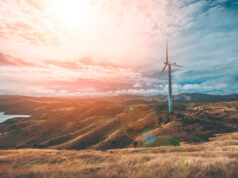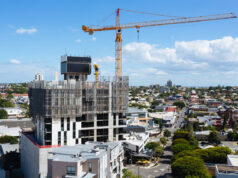Big business is increasingly aware that its customers demand meaningful action on climate change. Woolworths has answered the call with plans to power all of its Australian operations with 100 per cent green energy by 2025. It is part of a sustainability plan that will also see zero food waste from the retailer go to landfill in the same timeframe.
Australia’s largest retailer announced the ambitious target in late 2020 as part of its new Sustainability Plan, which includes initiatives under three key pillars – Planet, Product and People.
‘Net neutral carbon emissions’ has become a familiar term as the effects of climate change become a topic of concern at all levels of the community. The Paris Climate agreement has sparked pledges by businesses around the world to offset their emissions to become carbon neutral.
Woolworths has gone one step further by declaring it will not only have net zero emissions in the shorter term, but actually work towards becoming emissions positive by 2050. This means the company will remove more carbon from the atmosphere than it produces.
“Moving to 100 per cent renewable electricity is the right thing to do, and something a growing number of our customers, team members and shareholders expect us to lead on,” says Woolworths Group CEO Brad Banducci.
“We use around one per cent of Australia’s national electricity, so we have a unique opportunity to use our scale for good and make a real impact. Over the coming years, we’ll invest tens of millions of dollars into renewable energy partnerships and prioritise new green energy projects to spur growth in the industry and new jobs in the sector.”

Green energy use may be the poster child of the company’s scheme, but it doesn’t stop there. Woolworths will ensure 100 per cent of its own brand packaging and ingredients are sustainable and provide healthier choices for customers. It’s also aiming for net zero supply chain deforestation for high-impact commodities in its own brand products like palm oil, timber, pulp and paper, and packaging by 2025.
The commitments build on Woolworths’ sustainable practices, which the company says have so far delivered a 24 per cent reduction in carbon emissions on 2015 levels.
Last December, Woolworths opened its most sustainable supermarket, in East Melbourne. Not only does it run entirely on renewable energy and have LED light fittings, all meat and dairy cases are fitted with fridge doors, while freezers and chillers use natural refrigerants.














